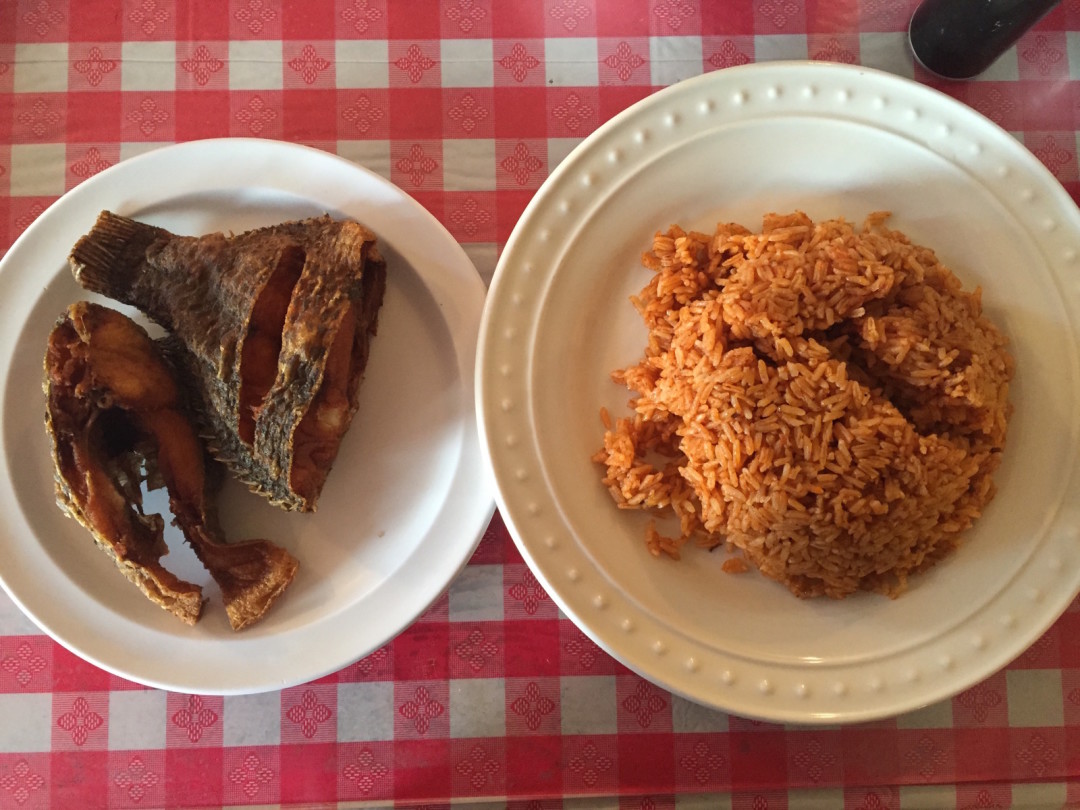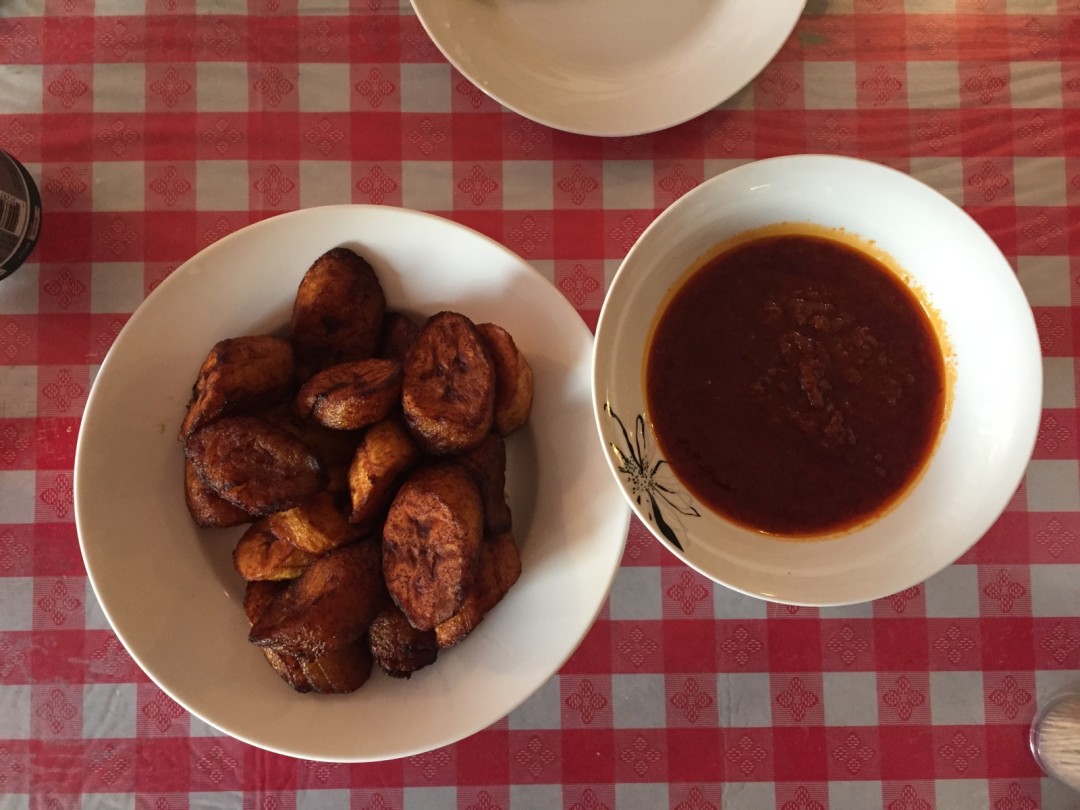A Taste of West African Glory: Jollof Rice at Afrikiko

Fried fish and jollof rice at Afrikiko
Image: Kayla Stewart
The vibrant international community in Houston makes for some incredible dining experiences. You can find just about any type of dish from all parts of the world, something I believe is one of our city’s best attributes. One of the most dynamic, and sometimes overlooked, dining experiences exists in West African cuisine. West African dishes such as okra stew and peanut butter soup are some of the most flavorful meals around, but it’s jollof rice that has an unyielding pull on my palate.
Jollof rice, a staple part of West African meals, originated in Ghana before spreading to nearby countries like Nigeria, Liberia and Togo. The cooking method for jollof rice—which is usually has basmati or African rice as its base—typically starts with palm oil, a common ingredient in West African cuisine. The rice can include a variety of ingredients such as tomatoes, onions, spices, salt and hot peppers. Chefs fry the vegetables and add colorful, spicy seasonings before adding the blend to the rice, giving the finished dish a deep red-orange hue. During my time in Ghana, jollof rice was a part of almost every meal, often served with bright green peas tossed in, and cooks typically pair it with everything from vegetables to meat and fish.
But that was two years ago, and I hadn't had any jollof rice since, though I thought about it frequently. Finally, I decided to go on the hunt in Houston for my favorite Ghanian dish, and I ended up at Afrikiko, in Houston's Little Nigeria, which has made a name for itself with its authentic recipes and flavorful dishes. The decor, like the jollof rice, is colorful, and artwork on the walls portrays past chiefs of various ethnic groups in Ghana. Guinness and Malta are the drinks of choice, and guests get a lecture on Twi—a dialect of the Akan language—with their menu.

Fried plantains and palm nut stew
Image: Kayla Stewart
After that mini-refresher course on common phrases gleaned from the menu, I ordered my jollof rice with fried fish. Ghanaian meals are prepared fresh, so it can take about 45 minutes for food to cook. The waiters, who are natives of Ghana, brought us sweet fried plantains and palm nut stew to get us through the long wait. Sipping my Guinness slowly, I anxiously awaited the inevitable star of my meal. When the waitress came out with platefuls of meat, rice and even more stew, I was ecstatic; my two-year wait was over.
While my jollof rice dish was delivered sans peas, I quickly realized my order was enough to feed a small family, and that was good enough for me. As I took my first bite, I was transported back to my time in Ghana. The startling flavor of the chile pepper against the fluffy basmati rice made me feel like I was in a restaurant in Accra. I quickly mixed my rice with my stew and fish as I had in Ghana, a move the owners were fairly impressed with. I savored every bite and let the piquant spices dominate the meal. Afrikiko managed to maintain its Ghanaian roots, exceeding my expectations and bringing me back to the blissful pleasures of West African cuisine.




